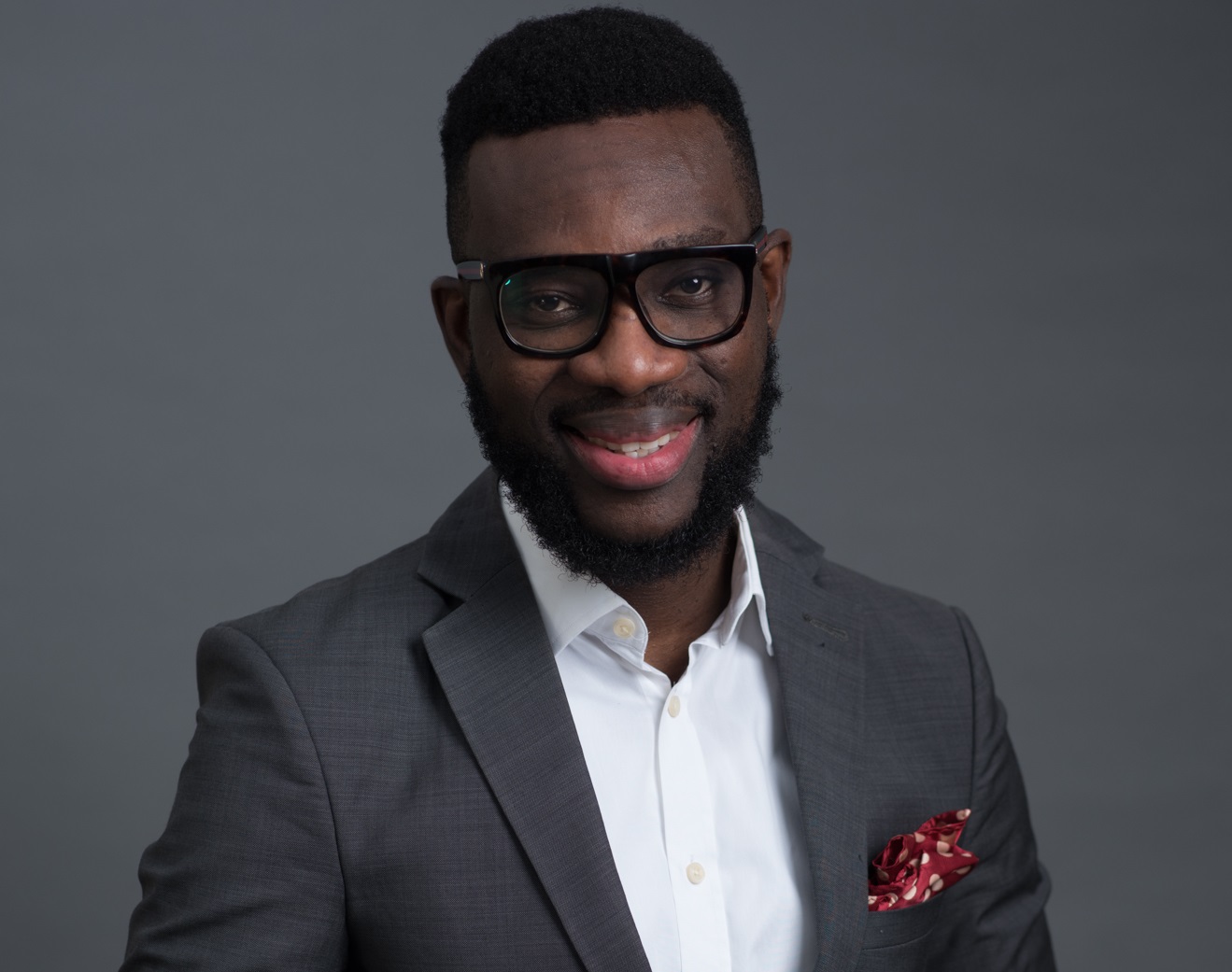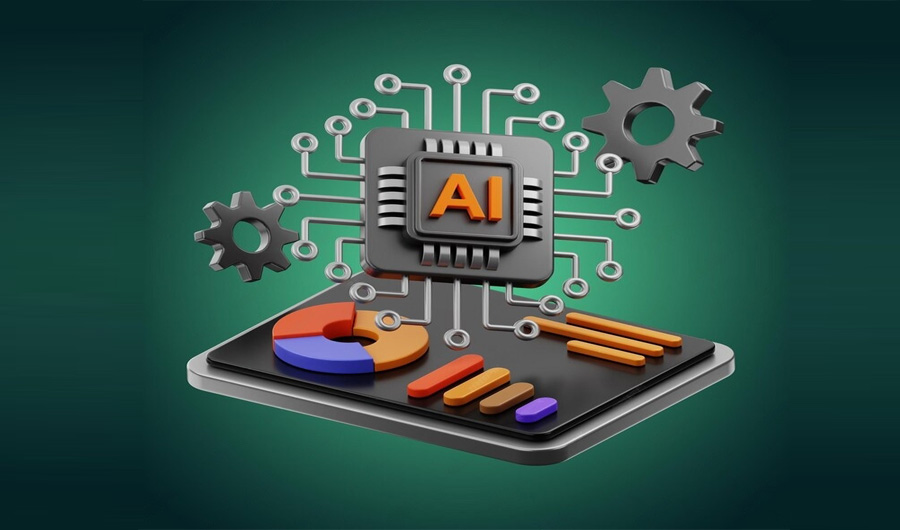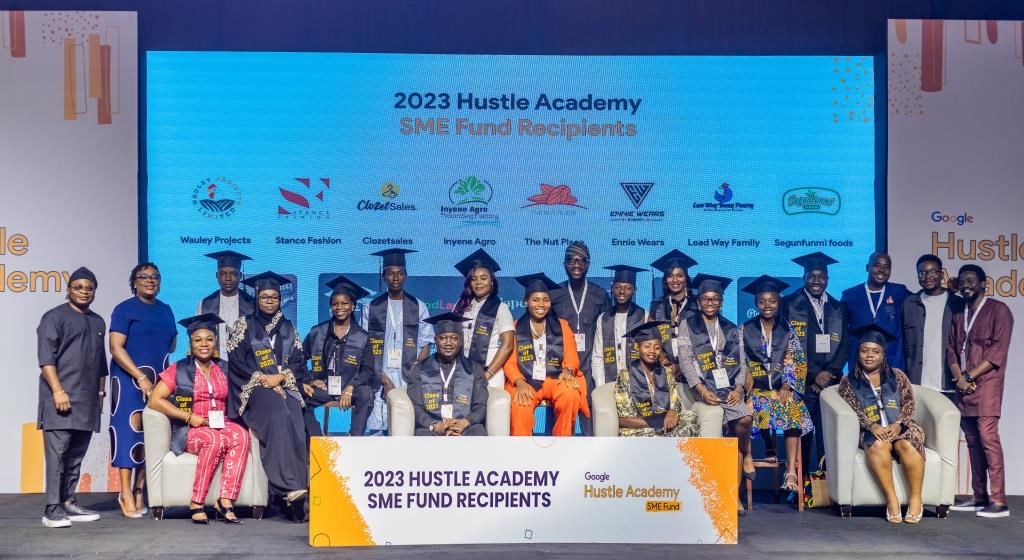Technology
Google Experts Answer Your Top Most Searched Questions on AI

New search trends released by Google show that search interest in AI has reached an all-time high in Nigeria. The trends show that people have searched for AI more than ever in 2023 so far, with interest rising 310% since last year, and by 1,660% in the last five years.
Google’s research also revealed the top trending questions being asked about AI across Nigeria. Here, Google West Africa Director, Olumide Balogun, answers some of the most frequently asked questions.
- What is Artificial Intelligence and how does it work?
AI is a type of technology that can learn from its environment, experiences and people and that can understand patterns and make projections better than any previous technology before it.
AI models are trained and created by human engineers, who input data into the AI system to train it. For example, in 2012, we showed an AI model thousands of videos of cats on YouTube so that it could learn to recognize a cat. Now, with advancements in technology, we could give an AI model hundreds of books on animals to read – and, using those, it would be able to describe a cat to us on its own despite having never been shown one.
Once AI systems are trained, they’re tested to see if they work well. You can do this by asking the AI model to describe or recognise a cat, for example, or even to generate a picture of one for you. Training AI models can take a long time – but once they work, they can be deployed into production so that you can use them at home.
- When did AI start?
AI can be traced back to the early 1950s, when Alan Turing – a British mathematician – published a paper on Computing Machinery and Intelligence. That kick-started the principles behind AI – but the first time anyone used the term was likely in 1956 when John McCarthy hosted a conference at Dartmouth College called the Dartmouth Summer Research Project in Artificial Intelligence.
So AI is not new – in fact, AI research has been accelerating since the 1990s. Google itself became an AI-first company back in 2015. But the pace of AI development is accelerating – with more households able to access generative AI tools like text-to-image generators or chatbots – which has made AI a household phrase for maybe the first time ever.
- Where is AI used?
AI has always been integral to many daily tools, from Google Translate to antilock braking in cars. Its transformative power, however, is being harnessed more profoundly now. In the heart of this evolution is the Google AI Centre in Accra, laser-focused on Africa’s unique challenges and aspirations. While innovations like Google DeepMind’s AlphaFold impact global biotech, in Africa, we’re taking strides that resonate with local needs. We’re collaborating to map remote buildings for better planning, using AI to predict challenges like locust outbreaks and enhancing maternal health via AI-powered ultrasound.
AI’s potential in sustainability is vast. In Africa, it’s about thriving industries that respect our rich biodiversity. While the global health community benefits from protein sequence mapping, for Africa, it’s a hope against diseases like malaria.
- What can AI do and how can I use it?
Think of AI as a tool that’s really good at understanding patterns and making projections – better than any computer has been before – and that’s been taught to learn from its environment, experiences and people. When you put that ability to good use, you can use AI to do all sorts of amazing things, like helping doctors to screen for and identify cancer, predicting and monitoring natural disasters, or helping businesses to identify and reduce their carbon emissions.
You’re probably using AI all the time already without realising it. But you can now also use AI to help boost your productivity with experimental language tools like Bard, to translate even more languages on Google Translate, or to find the most fuel-efficient route on Google Maps.
- Is AI dangerous?
AI is like any other technology in that it can be used for good or bad, depending on the user. On the one hand, it has incredible potential to be used in ways that are beneficial for society – whether it’s protecting people from spam and fraud, translating hundreds more languages, or forecasting floods up to seven days in advance. But it can also be used to amplify current societal issues – like misinformation and discrimination.
It’s really important that we get these tools right, working together to ensure we’re creating and using them responsibly. That means governments are introducing regulations to help us seize the benefits of AI while mitigating the risks, as well as companies developing shared sets of standards and principles. At Google, we’re also led by our own AI Principles – which you can read online – to make sure we’re developing AI that is beneficial for society.
- Will AI take my job?
As technology has developed, so too has the job market. At the beginning of the last century, people mostly worked in agriculture. Now we have hedge fund managers, cabin crews aboard widely accessible commercial flights – and, as recently as 1995, web designers. So we’ve had these questions for a long time, and, as a society, we’ve navigated them well.
That’s not to underestimate the potential of AI – which is essentially the ‘third wave’ of digital technology after the internet and mobile phones. It will be brilliant for people’s productivity and for economic opportunity – but it will also cause some levels of disruption. We’ll see a whole set of jobs that can grow – but the most profound change will be how many of our jobs will be assisted by technology. AI will become a partner to many of us, helping us not just to make the repetitive tasks of our work more efficient but also sparking creativity and enabling us to spend more time on the bits of our jobs that we love and that challenge us. We’re already working with people to help them learn how AI can help them. Our Grow with Google programs have trained 7 million people and helped to close the digital skills gap in Africa. Governments, NGOs, and the private sector can work together to bring similar schemes about – ensuring that everyone can benefit from AI.
Technology
Telecom Operators to Issue 14-Day Notice Before SIM Disconnection

By Adedapo Adesanya
Telecommunications operators in Nigeria will now be required to give subscribers a minimum of 14 days’ notice before deactivating their SIM cards over inactivity or post-paid churn, following a fresh proposal by the Nigerian Communications Commission (NCC).
The proposal is contained in a consultation paper, signed by the Executive Vice Chairman and Chief Executive Officer of the NCC, Mr Aminu Maida, and titled Stakeholders Consultation Process for the Telecoms Identity Risks Management Platform, dated February 26, 2026, and published on the Commission’s website.
Under the proposed amendments to the Quality-of-Service (QoS) Business Rules, the Commission said operators must notify affected subscribers ahead of any planned churn.
“Prior to churning of a post-paid line, the Operator shall send a notification to the affected subscriber through an alternative line or an email on the pending churning of his line,” the document stated.
It added that “this notification shall be sent at least 14 days before the final date for the churn of the number.”
A similar provision was proposed for prepaid subscribers. According to the Commission, operators must equally notify prepaid customers via an alternative line or email at least 14 days before the final churn date.
Currently, under Section 2.3.1 of the QoS Business Rules, a subscriber’s line may be deactivated if it has not been used for six months for a revenue-generating event. If the inactivity persists for another six months, the subscriber risks losing the number entirely, except in cases of proven network-related faults.
The new proposal is part of a broader regulatory review tied to the rollout of the Telecoms Identity Risk Management System (TIRMS), a cross-sector platform designed to curb fraud linked to recycled, swapped and barred mobile numbers.
The NCC explained in the background section of the paper that TIRMS is a secure, regulatory-backed platform that helps prevent fraud stemming from churned, swapped, barred Mobile Station International Subscriber Directory Numbers in Nigeria.
It said this platform will provide a uniform approach for all sectors in relation to the integrity and utilisation of registered MSISDNs on the Nigerian Communications network.
In addition to the 14-day notice requirement, the Commission also proposed that operators must submit details of all churned numbers to TIRMS within seven days of completing the churn process, strengthening oversight and accountability in the system.
The consultation process, which the Commission said is in line with Section 58 of the Nigerian Communications Act 2003, will remain open for 21 days from the date of publication. Stakeholders are expected to submit their comments on or before March 20, 2026.
Technology
Silverbird Honours Interswitch’s Elegbe for Nigeria’s Digital Payments Revolution

By Modupe Gbadeyanka
The founder of Interswitch, Mr Mitchell Elegbe, has been honoured for pioneering Nigeria’s digital payments revolution.
At a ceremony in Lagos on Sunday, March 1, 2026, he was bestowed with the 2025 Silverbird Special Achievement Award for shaping Africa’s financial ecosystem.
The Silverbird Special Achievement Award recognises individuals whose innovation, vision, and sustained impact have left an indelible mark on society.
Mr Elegbe described the award as both humbling and symbolic of a broader journey, saying, “This honour represents far more than a personal milestone. It reflects the courage of a team that believed, long before it was fashionable, that Nigeria and Africa could build world-class financial infrastructure.”
“When we started Interswitch, we were driven by a simple but powerful idea that technology could democratise access, unlock opportunity, and enable commerce at scale.
“This recognition by Silverbird strengthens our resolve to continue building systems that empower businesses, support governments, and expand inclusion across the continent,” he said when he received the accolade at the Silverbird Man of the Year Awards ceremony attended by several other dignitaries, whose leadership and contributions continue to shape national development and industry transformation.
In 2002, Mr Elegbe established Interswitch after he was inspired by a bold conviction that technology could fundamentally redefine how value moves within and across economies.
Under his leadership, the company has evolved into one of Africa’s foremost integrated payments and digital commerce companies, powering financial transactions for governments, banks, businesses, and millions of consumers.
Today, much of Nigeria’s electronic payments ecosystem traces its foundational architecture to the systems and rails established under his leadership.
“Mitchell’s journey is inseparable from Nigeria’s digital payments evolution. His foresight and resilience helped establish foundational infrastructure at a time when the ecosystem was still nascent.
“This recognition affirms not only his personal legacy, but the broader impact of Interswitch in enabling commerce and strengthening financial systems across Africa,” the Executive Vice President and Group Marketing and Communications for Interswitch, Ms Cherry Eromosele, commented.
Technology
SERAP Seeks FCCPC Probe into Big Tech’s Impact on Nigeria’s Digital Economy

By Adedapo Adesanya
The Socio-Economic Rights and Accountability Project (SERAP) has called on the Federal Competition and Consumer Protection Commission (FCCPC) to urgently investigate major global technology companies over alleged abuses affecting Nigeria’s digital economy, media freedom, privacy rights and democratic integrity.
In a complaint addressed to the chief executive of FCCPC, Mr Tunji Bello, the group accused Google, Meta (Facebook), Apple, Microsoft (Bing), X, TikTok, Amazon and YouTube of deploying opaque algorithms and leveraging market dominance in ways that allegedly undermine Nigerian media organisations, businesses, and citizens’ rights.
The complaint, signed by SERAP Deputy Director, Mr Kolawole Oluwadare, urged the commission to take measures necessary to urgently prevent further unfair market practices, algorithmic influence, consumer harm and abuses of media freedom, freedom of expression, privacy, and access to information.”
SERAP also asked the FCCPC to convene a public hearing to investigate allegations of algorithmic discrimination, data exploitation, revenue diversion, and anti-competitive conduct involving the tech giants.
According to the organisation, dominant digital platforms now act as private gatekeepers of Nigeria’s information and business ecosystem, wielding enormous influence over public discourse and market competition without sufficient transparency or regulatory oversight.
“Millions of Nigerians rely on these platforms for news, information and business opportunities,” SERAP stated, warning that opaque algorithms and offshore revenue extraction models pose both economic and human rights concerns.
The group argued that the alleged practices threaten media plurality, consumer protection, privacy rights, and the integrity of Nigeria’s forthcoming elections.
SERAP pointed to actions taken by the South African Competition Commission, which investigated Google over alleged bias against local media content, adding that the South African probe reportedly resulted in measures including algorithmic transparency requirements, compliance monitoring and financial remedies.
SERAP urged the FCCPC to take similar steps to safeguard Nigerian media and businesses.
The organisation maintained that if established, the allegations could amount to violations of Sections 17 and 18 of the Federal Competition and Consumer Protection Act (FCCPA), which prohibit abuse of market dominance and anti-competitive conduct.
SERAP stressed that the FCCPC has statutory authority to investigate and sanction conduct that substantially prevents, restricts or distorts competition in Nigeria.
It also warned that failure by the Commission to act promptly could prompt the organisation to pursue legal action to compel regulatory intervention.
Citing concerns reportedly raised by the Nigerian Press Organisation (NPO), SERAP said big tech companies have fundamentally altered Nigeria’s information environment, creating what it described as a structural imbalance of power that threatens the sustainability of professional journalism.
Among the allegations listed are: Algorithms controlled outside Nigeria determining content visibility, monetisation of Nigerian news content without proportionate reinvestment, offshore extraction of advertising revenues, limited discoverability of Nigerian websites and platforms, and lack of transparency in ranking and recommendation systems.
SERAP argued that declining revenues in the Nigerian media industry have led to shrinking newsrooms, closure of bureaus, and the emergence of news deserts, weakening journalism’s constitutional role in democratic accountability.
The organisation further warned that algorithmic opacity and data-driven micro-targeting could influence voter exposure to information ahead of Nigeria’s forthcoming elections, raising concerns about electoral fairness and transparency.
-

 Feature/OPED6 years ago
Feature/OPED6 years agoDavos was Different this year
-
Travel/Tourism10 years ago
Lagos Seals Western Lodge Hotel In Ikorodu
-

 Showbiz3 years ago
Showbiz3 years agoEstranged Lover Releases Videos of Empress Njamah Bathing
-

 Banking8 years ago
Banking8 years agoSort Codes of GTBank Branches in Nigeria
-

 Economy3 years ago
Economy3 years agoSubsidy Removal: CNG at N130 Per Litre Cheaper Than Petrol—IPMAN
-

 Banking3 years ago
Banking3 years agoSort Codes of UBA Branches in Nigeria
-

 Banking3 years ago
Banking3 years agoFirst Bank Announces Planned Downtime
-

 Sports3 years ago
Sports3 years agoHighest Paid Nigerian Footballer – How Much Do Nigerian Footballers Earn


















